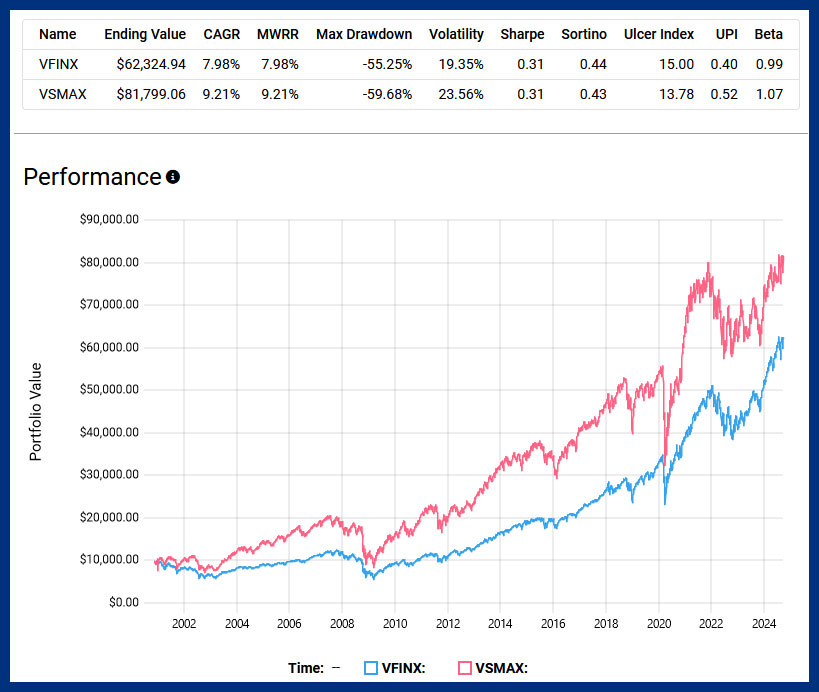Apparently, small-cap shares have traditionally outperformed their bigger counterparts and, if teachers are to be believed, will proceed to take action over the long run. Don’t let recency bias sway you; the dominance of mega-cap shares during the last decade isn’t the entire story.
What’s a market cap?
Market cap, quick for market capitalization, is the full market worth of an organization’s excellent shares, or shares. To calculate market cap, a number of the variety of shares by the market worth of 1 share. (For instance, an organization with 10 million shares priced at $25 every has a market cap of $250 million.) Individuals within the investing group use market cap to point an organization’s worth and evaluate its dimension relative to others in the identical business or sector. Inventory exchanges and cryptocurrencies even have a market cap.
Learn extra within the MoneySense Glossary of Investing phrases: What’s a market cap?
Relating to the inventory market, there are specific formulation, referred to as asset pricing fashions, that assist us perceive why shares transfer the way in which they do. You might need heard of 1 known as CAPM, or the Capital Asset Pricing Mannequin. Principally, CAPM tells us that the return you must anticipate from a inventory is tied to how dangerous it’s in comparison with the entire market. It’s like saying, the riskier the inventory, the larger the potential reward ought to be.
Right here’s the twist: CAPM doesn’t reveal the entire story. It misses out on another elements that may additionally have an effect on a inventory’s efficiency. Again within the Nineties, two professors from the College of Chicago, Eugene Fama and Kenneth French, added extra layers to this mannequin. It’s known as the Fama-French three-factor mannequin. It later grew right into a five-factor mannequin, however to maintain it easy, let’s go together with the unique three:
- Market Issue (Rm-Rf): That is the additional return you’d anticipate from investing within the inventory market over one thing tremendous secure, like authorities bonds.
- Dimension Issue (SMB for Small Minus Huge): This one’s attention-grabbing as a result of it exhibits that smaller corporations usually outperform bigger ones. It’s type of like rooting for the underdog.
- Worth Issue (HML for Excessive Minus Low): This tells us that shares which are priced decrease relative to their ebook values (suppose discount shares) usually do higher than these which are costlier.
So, specializing in the scale issue, it explains why, over time, these smaller corporations, or “small caps” as we name them, would possibly offer you higher returns than the giants of the inventory world.

To grasp the efficiency dynamics between large- and small-cap shares, we will study two older U.S. index-based mutual funds: the Vanguard 500 Index Fund Admiral Shares (VFIAX), which tracks the S&P 500, and the Vanguard Small-Cap Index Fund Admiral Shares (VSMAX).
We’ll use a back-test interval from November 14, 2000, to September 19, 2024. This timeline is especially insightful because it consists of a number of main market occasions: the dot-com bust, the 2008 monetary disaster, the COVID-19 pandemic and the following bull market primarily pushed by expertise shares.
Throughout this era, small caps, represented by VSMAX, outperformed the S&P 500, as tracked by VFIAX. The Compound Annual Progress Charge (CAGR) for VSMAX stood at 9.21% in comparison with 7.98% for VFIAX. Nevertheless, this greater return got here with elevated volatility and bigger drawdowns (worth drops from peak to trough).
On a risk-adjusted foundation, the efficiency of each funds basically leveled out with an similar 0.31 Sharpe ratio, which means that traders in VSMAX had been compensated roughly pretty for the upper danger related to small-cap investments.

